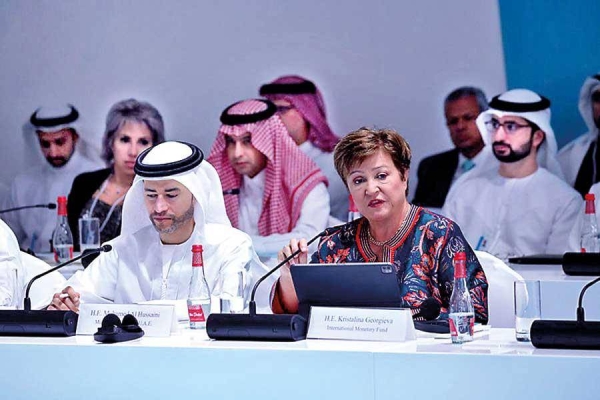
Miguel de Cervantes Saavedra, the celebrated 16th-century Spanish author of Don Quixote de la Mancha, once said that “the gratification of wealth is not found in mere possession or lavish expenditure, but its wise application.” This was an age of exploration for the Spanish, accessing the wealth of natural resources, such as oil and gold in the Americas.
Oil, which is aptly known as black gold, provides the same opportunities for Saudi Arabia as it charts its ambitious course to Vision 2030.
With oil price almost at $100 – it is welcome news for the country and region compared to 2020 when it went negative. High oil prices mean more revenues for the government, the economy, and everyone. Historically, the wealth of oil has led to an incredible domestic boom: think more race cars and trips and spend abroad - but this time, change is necessary.
What we need is to plug the leakage and ensure we raise standards of living and support private sector activity, particularly in emerging sectors like tourism.
The GCC region is not new to diversification strategies. Vision 2020 in Oman, Vision 2021 in the UAE, and Vision 2030 in the Kingdom have all focussed on strategies that have promoted sustainable development, reduced dependence on oil revenues, and increased private-sector job creation for locals. However, international experience shows that diversifying away from oil is not always straightforward. For every Malaysia, Indonesia, and Mexico that has been able to diversify away from oil, there are many examples of those who didn’t succeed.
A good example is the “Dutch Disease” — a throwback to the 1960s where huge oil discoveries in the Netherlands led to significant domestic inflation, making local non-oil exports more expensive and, therefore, less competitive. Norway learned from this mistake and created the Norges Fund in the 1990s, which sterilized most of the country’s oil wealth. Today Norges Fund is the largest Sovereign Wealth Fund in the world and is worth $1.4 trillion - a handsome pool of savings for a population of just 5.3 million.
PIF is doing the same for the Kingdom and has fundamentally changed the investment paradigm by heavily investing in tourism and funding the Giga projects over the last five years. Several policies have been adopted, a stable economic environment has been achieved, ease of doing business has improved, the investment climate has strengthened, education has been expanded, trade liberalized, and the financial sector deepened.
Now is a good time to fully realize this new tourism dream
Aradhana Khowala
Given that oil is an exhaustible resource and the world is planning a post-hydrocarbon future, Saudi Arabia needs to realize the windfall profit and boost private sector growth by encouraging locals to pursue career opportunities in tourism and turn entrepreneurs and innovate. So far, the young Saudis are embracing this prospect.
A recent study by The Red Sea Project shows that more young Saudis are looking towards careers in tourism and hospitality than they are in ‘traditional’ sectors such as oil and gas and petrochemicals. Ninety-one percent of young Saudis are interested in pursuing a career in tourism, compared to 77 percent who are interested in a career in petrochemicals.
This shift in the interests of the younger population augurs well for Saudi Vision 2030 and provides a fresh impetus for the Kingdom’s ambition to diversify its economy.
Now is a good time to fully realize this new tourism dream, create high-paying private-sector jobs for locals, build an alternate economic platform that will not only expand Saudi Arabia’s traditional focus on religious tourism but also reshape the social and political landscape of the long-predominant oil economy.
So, what more can the Kingdom do to spend the oil bonanza on the tourism sector?
It can look at stepping up investments in tourism education covering the entire value chain from vocational education to operational to leadership training and creating a global, high-value tourism learning eco-system that supports locals in acquiring relevant skills.
It should continue to invest in physical infrastructure and strengthen the legal and regulatory environment to reduce costs and improve the ease of doing business.
It is also important to foster entrepreneurship and innovation through improved access to information, communication, technology, finance, along with greater spending on research and development.
This decade is critical to delivering on the Vision 2030 and diversification agenda for the Kingdom. If we can act on it before the opportunity slips away, we will have made hay while the sun shone. As they say in Latin -— carpe diem!
• Aradhana Khowala is a global authority on the luxury tourism and hospitality industries having worked across 75 countries. She is currently the Chair of the Global Advisory Board of The Red Sea Development Company.
Disclaimer: Views expressed by writers in this section are their own and do not necessarily reflect Arab News" point-of-view












